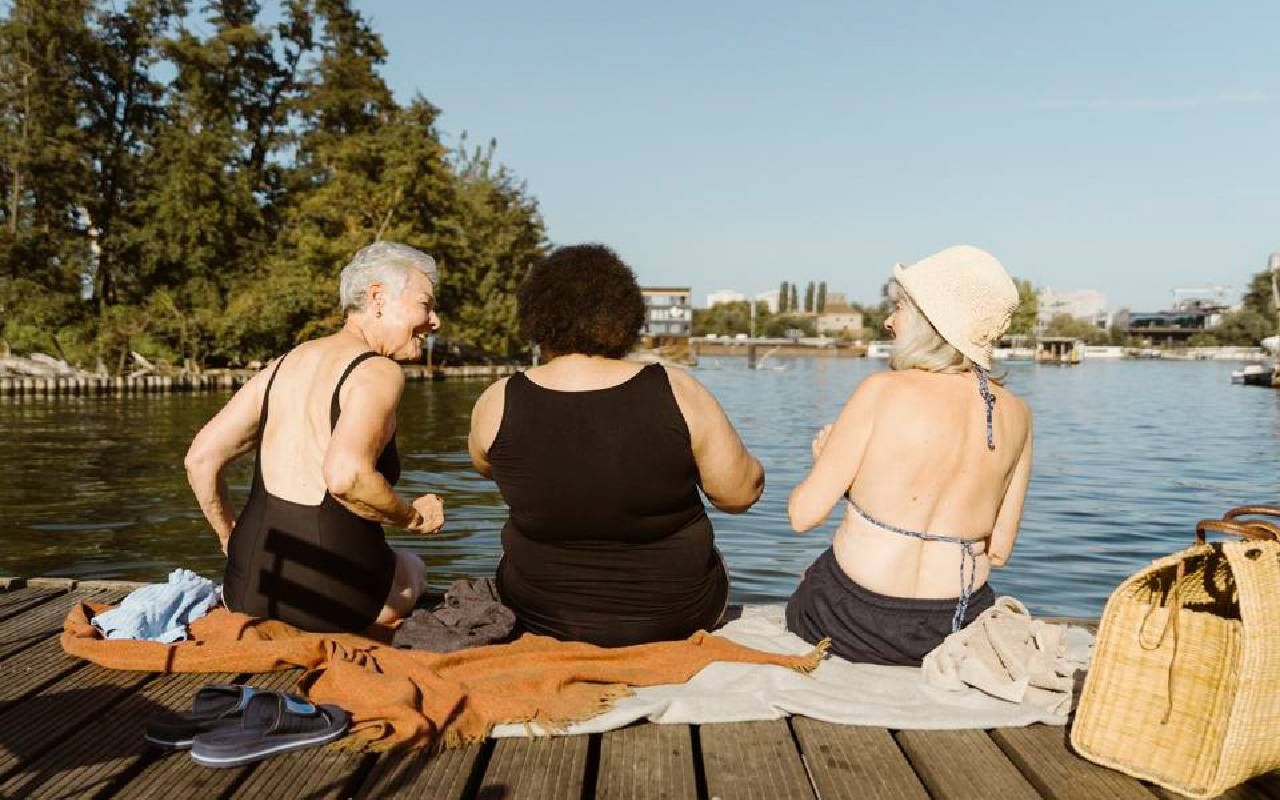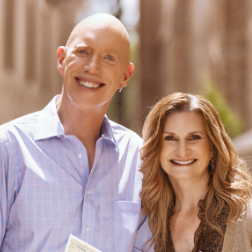What Does Aging Gracefully Even Mean?
Start by feeling comfortable — even proud — of who, what and how old you are
The older we get, the more the term "aging gracefully" seems to pop up. In interviews with actresses in their 60s and 70s. In articles offering advice on how to keep our skin dewy and youthful, our bodies trim and healthy.

But what does aging gracefully even mean? Is it about looking years younger than your actual age, whether through lucky genes, dedication to health and wellness, cosmetic procedures or all of the above?
Or are graceful agers those who confidently embrace their older status while letting their hair go gray and accepting lower stamina and those extra pounds?
Let's begin by acknowledging what a privilege it is to even be debating this topic. It is hard to believe that Americans born after 1945 were the first in history whose average life expectancy reached Social Security full retirement age.
Age Gracefully by Living Longer
Today's massive population of older adults, growing up in the golden age of the American Dream, has "reshaped every stage of life they've inhabited," according to Ken Dychtwald, founder of Age Wave. So it is only natural that they now seek to redefine what it means to be old.
Today's massive population of older adults has "reshaped every stage of life they've inhabited."
The clock nonetheless continues to tick. Are there secrets to successfully eluding the emotional landmines that accompany our inevitable arrival at — well — the end? To gracefully (defined in elegant fashion by the Cambridge Dictionary as "moving in a smooth, relaxed, attractive way") sashay toward whatever the future holds?
While there is no "right" way to pursue successful aging, experts have observed common characteristics of the most successful agers within three key life components.
Mental
Acceptance: In many cultures, older adults are held in high esteem for the wisdom they have amassed over the years. The Dalai Lama, for example, was born in 1935 and remains a revered leader of the Eastern world.
That used to be the case in the United States as well. But wouldn't you know it? The same group now reaching old age started our country's infatuation with youth when they first hit the scene back in the '60s.
Far from being venerated as we grow older, these days birthday balloons with negative messaging are likely to show up when we turn 40.
Against this backdrop it can be easy to grow despondent when gazing upon the "mature" face staring back in the mirror. Not if you are a graceful ager. These individuals eschew obsessive fretting about changes that accompany advancing years and simply acknowledge their inevitability.
Positive thinking: Rigid thinkers tend to view these naturally occurring differences in health and appearance as negative and become overwhelmed. This attitude creates stress and may even lead to depression.
A study by Yale professor Becca Levy found that those with a positive attitude about aging could add 7½ years to their lives. Not only that, her decades-long research revealed that older people with positive perspectives on aging performed better both physically and cognitively.
Embracing the present (and future): When it feels as if better days are behind you, reminiscing about pleasant memories brings comfort. But dwelling in the past can become a habitual distraction to avoid thinking of a present and future that appear less than promising.
Graceful agers embrace the present moment and continue to make plans for their future. Relishing today and continuing to set goals for tomorrow implies an expectation of more time to look forward to.
Social
Friends, old and new: Social networks tend to shrink as we age for a number of reasons, the most obvious being the death of friends and relatives. We may consciously move away from peripheral relationships and concentrate on those of greatest importance to us. Or declining mental or physical health can cause increasing isolation.
A recent study found that individuals who stayed engaged with others experienced a 70% lower rate of cognitive decline than those less active in their relationships. Graceful agers make sure they stay connected with old friends and are open to cultivating new friendships across all ages.
Meaningful activities: Too many people whose identities have been closely tied to their careers reach retirement age with no clue what to do with themselves. The challenge of aging gracefully is to actively seek new activities and interests.
Travel, hobbies, continuing education through local universities, volunteering or finally having the time to re-engage with family and friends are purposeful possibilities. Graceful agers remain eternally curious and keep pursuing meaningful goals because of a strong belief that they, and their lives, are still important.
Physical
Healthy diet: After preparing umpteen meals over a lifetime, staying motivated to maintain a healthy diet can be a challenge. Yet proper nutrition as you get older is known to be more important than ever to lowering the risk of debilitating illnesses like cardiovascular disease, type 2 diabetes and even some cancers.
Graceful agers often choose to limit highly processed foods in favor of whole foods (fruits, vegetables, grains). Although portion sizes for older adults tend to get smaller as activity levels decline, recent research suggests eating more protein to combat loss of muscle size and strength.
Out of ideas about what to cook? New apps powered by artificial intelligence are available to do the heavy lifting of menu planning for you, even designing custom recipes based on what you have on hand.
Staying active: Tiring more easily is a natural aspect of advancing age. But that's no excuse to not remain as active as you can.
The vitality and buoyant energy of many graceful agers is rooted in their dedication to staying fit. Indeed, experts agree that exercise is one of the most important things you can do for your physical and mental health.
Many studies have shown that maintaining regular physical activity, even light exercise like walking, can help prevent many common diseases. Improving strength and flexibility reduces the risk of crippling falls. The extensive mental health benefits of regular exercise include staving off dementia, reducing stress and improving sleep.
It is never too late to start, and immediate improvement has been documented in people as old as 100. The keys to success are to choose a type of exercise you enjoy, start slowly and progress until it becomes a habit to look forward to instead of a dreaded chore. Of course, getting your physician's endorsement in advance is a given.
Cosmetic enhancements: A multibillion dollar anti-aging industry constantly tells us we can't be happy with wrinkles, sagging skin and bags under our eyes. Today a dazzling cornucopia of lotions and potions, injectable fillers, laser therapy and lifts of all sorts is available. Any stigma attached to getting "a little help from my friends" has disappeared as quickly as a Botoxed frown line.
Graceful agers may choose to drink from this fountain of youth, but they are careful to seek a relaxed, natural look and avoid the overly tight "wind tunnel" results of excessive procedures.
Aging "Gratefully"
Since no two people are the same, "aging gracefully" can be defined in an infinite number of ways. Looking as young as possible is of paramount importance for some. Others could not care less about their appearance and are focused more on pursuits that they are passionate about.
Perhaps the most successful agers of all are the ones who don't think much about getting older. Instead of bemoaning their aches and pains and how life is slipping away, they focus on "aging gratefully." For a lifetime of experiences, both the joyous ones and the rough patches that perhaps revealed a powerful lesson. For wisdom picked up along the way and the love they have shared.
And, most of all, for the mighty accomplishment of actually growing old!


